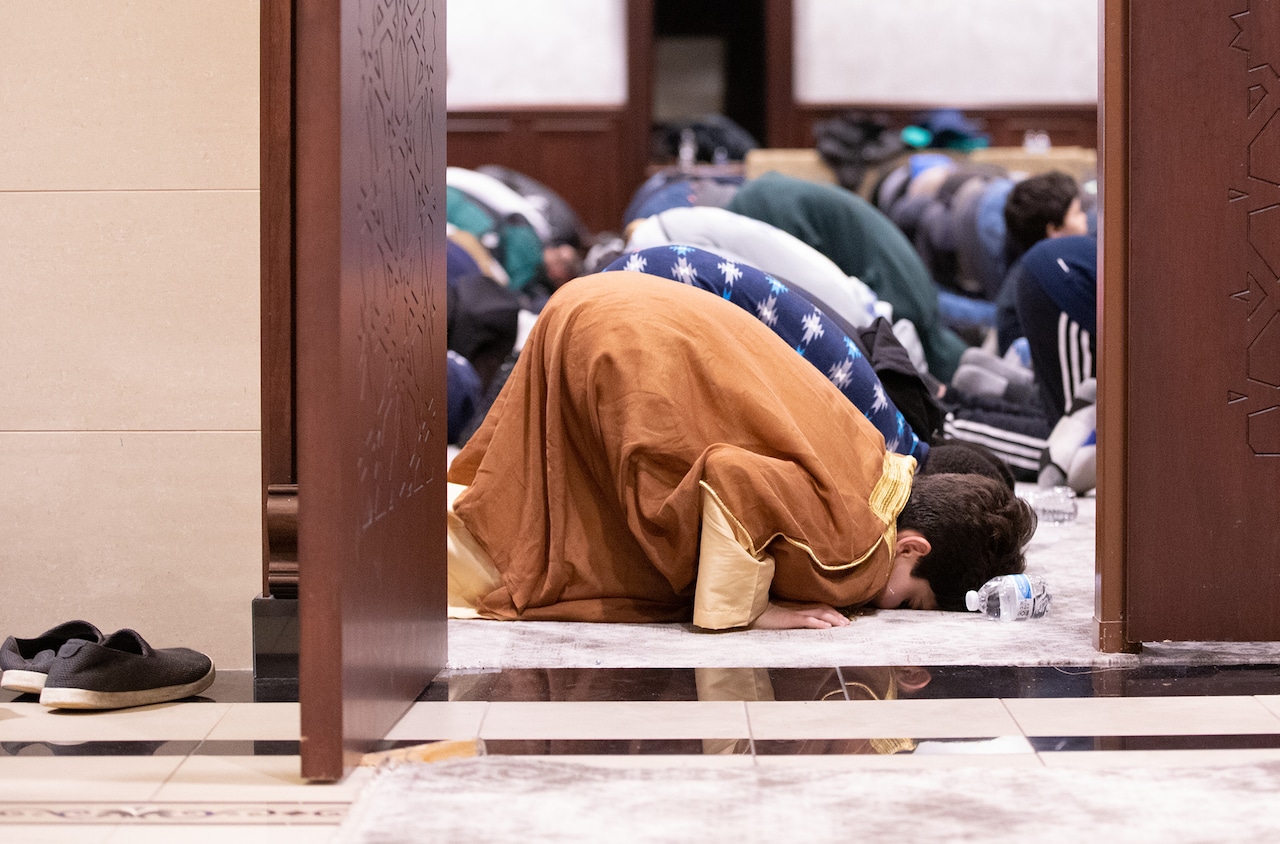
Ramadan, the Muslim holy month, will begin this year on March 10 at sunset and last until sunset on April 9. During this time, Muslims across the world will fast and focus on improving their relationship with God.
For Monther Alshaibani, a practicing Muslim from Weymouth, Ramadan will be an opportunity for him to better himself by picking up “good habits,” he told MassLive.
Alshaibani, 32, said specifically he’ll use this month to engage in more acts of worship, meaning more chances for him to connect with God. He said that he hopes his acts of worship will continue past Ramadan. Alshaibani said his goal is to develop a religious routine for himself and for him — being in a “constant state of remembrance,” he said.
“It’s very hard to describe, but there’s kind of like a feeling that comes with being in the month of Ramadan,” Alshaibani said.
- Read More: Imam Wissam Abdul Baki of Islamic Society of Western Massachusetts reflects on being a devout Muslim
During the holy month, Alshaibani said the mosques are more active with kids running in and around the prayer spaces. There are more family gatherings and Muslims practice acts of kindness as they are all “trying to be in an act of worship.”
“It just feels like the air is different, like if you’ve ever gone to California, it just feels different,” he said. “Like the air just feels different more so than Boston. It’s similar to that, but it’s more like a ‘home-y’ feeling.”
But Ramadan isn’t just for Muslims, according to Tahirah Amatul-Wadud, the executive director and chief legal officer for the Massachusetts chapter of the Council on American-Islamic Relations.
“We believe that [Ramadan] is a special month for the entire world and that the entire world benefits from the mercy and the goodness that God promises will be given in that month and so we hope and extend greetings of goodwill to humankind,” she told MassLive.
What is Ramadan?
Ramadan is the ninth month in the Islamic lunar calendar and is widely considered the most important month for the spiritual growth of Muslims, according to Amatul-Wadud.
Ramadan is one of the five pillars — or obligations — of Islam, along with a profession of faith, daily prayer, charity and a pilgrimage to Mecca, the birthplace of the Prophet Mohammed, according to an article from The Conversation US.
“People are excited about it, they sing songs about it and it’s a sense of renewal for people who are feeling tired, exhausted and need a reason for optimism,” Amatul-Wadud told MassLive. “That’s how the Muslim community views Ramadan.”
Ramadan dates back to the days of the Prophet Muhammad, whom Muslims view as the last prophet, Amatul-Wadud said.
Muslims believe that in the year 610, the angel Gabriel appeared to the Prophet Muhammad to reveal the Quran to him, according to National Geographic.
The revelation of the Quran, Laylat Al Qadar, which translated to the “Night of Power,” is believed to have occurred during Ramadan, according to National Geographic.
What does Ramadan entail?
During Ramadan, Muslims abstain from eating and drinking water from sunrise to sunset for the entire month, Amatul-Wadud said.
According to the Quran — the holy book of Islam — fasting was an order given to Muslims by God to help them become righteous.
Eating or drinking for the day invalidates your fast, which means you have to start over the next day, according to Vox. To make up for days you didn’t fast, you can either fast later in the year or provide a meal to a person in need for each day you missed.
Fasting also has physiological benefits, according to Amatul-Wadud. While fasting, people generally have less energy, which makes them less likely to get into arguments or be quick-tempered with others, Amatul-Wadud said.
“All of that is part of the reflection that we as Muslims attempt to do in the month of Ramadan and so naturally allows us to be in that mode just because of what it does to our body,” Amatul-Wadud said.
But, there are some reasonable exceptions to fasting for some Muslims, depending on circumstances.
For example, prepubescent children, pregnant people, people who are menstruating, and the ill can be exempted from fasting.
“Fasting is incumbent upon healthy adults,” Amatul-Wadud. If you just ask for two characteristics of who is expected to fast. It’s healthy adults.”
At the end of Ramadan, Muslims celebrate Eid al-Fitr, or “the feast of breaking the fast,” a three-day celebration that marks the end of the month-long holiday.






